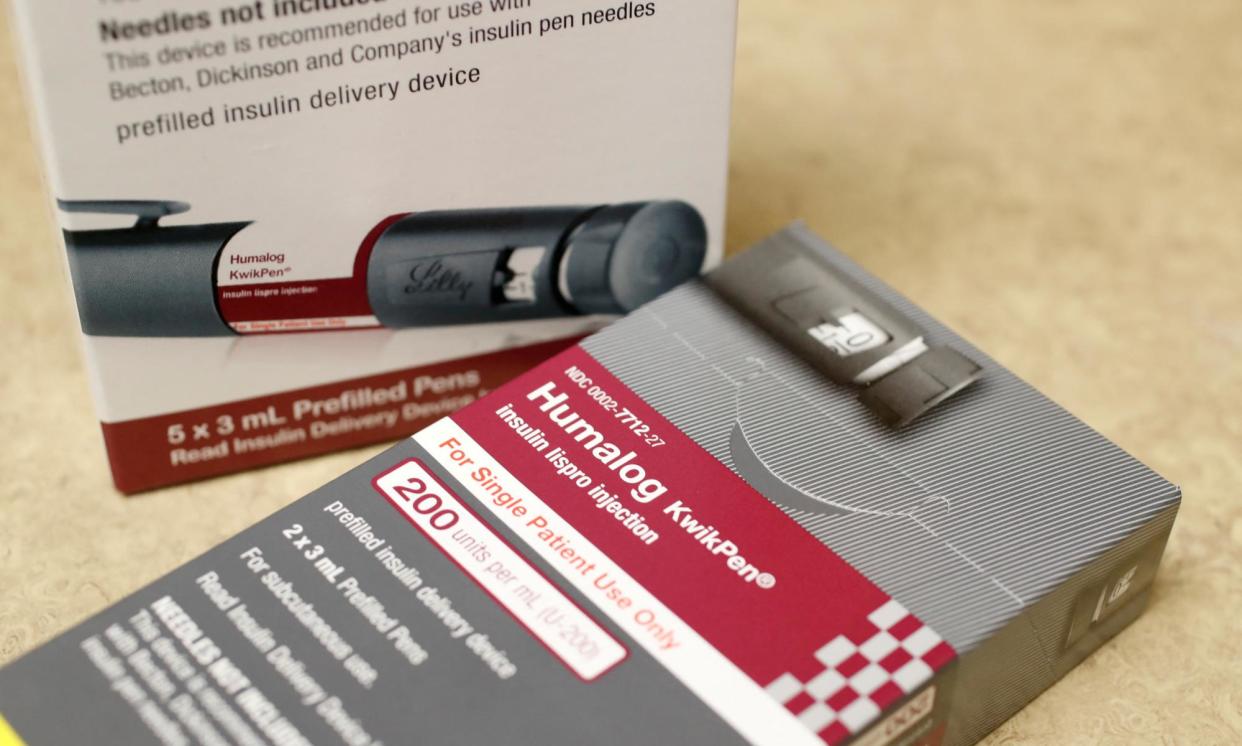Insulin shortages ‘causing stress and anxiety’ for UK diabetes patients

People with type 1 diabetes are being forced to endure the “stress and anxiety” of insulin shortages, patients, pharmacists and health campaigners have warned.
The “distressing” drug scarcity, the latest to affect the UK, is sowing uncertainty for the 400,000 people with the condition, with some products not available again until next year amid global manufacturing shortages.
Britain is already contending with record numbers of medicines becoming hard or impossible to obtain, including those for attention deficit hyperactivity disorder and epilepsy.
The Juvenile Diabetes Research Foundation (JDRF) said “a regular and reliable supply of insulin is essential for life” for people with type 1 diabetes. That is because their disease – an autoimmune condition unrelated to type 2 diabetes – means they cannot make insulin naturally and must inject it every day or receive it through a pump.
“People with type 1 diabetes must regulate their own insulin injections and dose, so it’s imperative that they have confidence in the supply of their regular type of insulin,” said Hilary Nathan, the JDRF’s director of policy.
“The news of any shortages could cause significant anxiety to people with type 1 diabetes.”
The Department of Health and Social Care (DHSC) confirmed there were “supply issues with a limited number of insulin products” that patients might find “distressing”.
One patient, an NHS doctor who puts vials of the drug into her insulin pump, said: “I spent the last two days trying to get hold of insulin to treat my type 1 diabetes. I was terrified when my usual, very reliable pharmacist told me he couldn’t get hold of my insulin.
“I had no idea that insulin could go out of stock. Type 1 diabetics fall ill and will die within a few days without insulin. I’m worried for fellow diabetics, not only to access the supply, to stay alive, but the stress and anxiety this causes.”
She had to ring a large number of pharmacies in her town before eventually finding one that still had stocks of vials of Humalog, her usual form of insulin, and getting a fresh supply. Eli Lilly, the US firm that makes Humalog, said last month that it and another form of the drug were temporarily out of stock.
Nathan said any shortage of vials “is of particular concern as people who use pumps to deliver their insulin rely on these forms of the drug”. Having to switch instead to an insulin pen, because vials are unavailable, “could be enormously disruptive and distressing to [a patient’s] everyday life”.
As well as Humalog, two other insulin formulations – Fiasp FlexTouch pre-filled injecting pens and Tresiba FlexTouch pens – are also in short supply. Neither is expected to become available again until early next year. Two other forms of insulin have been discontinued recently.
In a report published earlier this month, the Nuffield Trust warned that drug shortages were a “new normal” in Britain and that Brexit was worsening the situation.
James Davies, the Royal Pharmaceutical Society’s director for England, said: “It’s understandable when there’s a supply issue with insulin medicines it can make people very anxious, as they and their family members rely on their medicines to stay well.
“When someone is unable to get the medicine they need, it can put their health at risk and destabilise their condition.”
The NHS has sought to reassure people with type 1 diabetes that they can use other formulations when their usual product is unavailable. But a small number of people have encountered difficulties as a result of being given “inappropriate dosing” advice when they switched. They included one who was hospitalised with ketoacidosis – a potentially life-threatening side-effect of type 1 diabetes – according to a national patient safety alert issued in December.
“The impact of medicine shortages on patients and our community pharmacies continues to be a deep concern. It is a battle to keep up with the large number of medicine supply issues”, said Mike Dent, the director of pharmacy funding at Community Pharmacy England.
“The shortages affecting several medicines, including anti-epileptic drugs, insulins and certain diabetes treatments are not only affecting the timely dispensing of medications but are also placing huge strain on community pharmacies operationally and financially.”
Paul Rees, the chief executive of the National Pharmacy Association, said the scarcity of some insulin products “highlights the precarious nature of medicine supply – even for life-threatening conditions”.
He added: “We urgently need the government to sort out the UK’s fragile medicines supply system.”
A DHSC spokesperson said: “We are aware of supply issues with a limited number of insulin products and are working with the respective manufacturers to help resolve them. We have also issued comprehensive guidance to the NHS about these supply issues, which provides advice on how to manage patients during this time.
“We know that shortages can be distressing for patients and families, and we advise any patient who is worried about their condition to speak to their clinician.”

 Yahoo News
Yahoo News 
